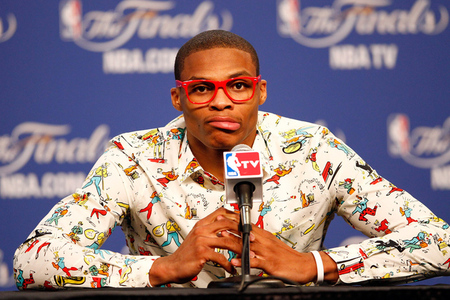Charles Murray's "Coming Apart: the State of White America, 1960 - 2010" made quite a splash among the editorial pages of the major newspapers, magazines, and the like outfits upon its publication. Murray, a political scientist and a scholar at the American Enterprise Institute, demonstrates that a gargantuan class divide has formed and accelerated in the last several decades as compared to the interconnected lifestyles of the American classes in the sixties. Murray argues that the confluence of education, technology, and enhanced mobility has led to the isolation of the elite classes in their own geographic, cultural, and social bubble at the same time as the lower classes have experienced a shocking decline in social capital measured by factors such as marriage rates, industriousness, and religiousness. The author focuses on the whites of America to remove race as a variable in this alarming discussion of the disintegration of the American social fabric.
When my favorite columnist, David Brooks, raved about the book in his column, I decided to see for myself what the hype was about. Looks like "The Hunger Games" will have to wait.
When my favorite columnist, David Brooks, raved about the book in his column, I decided to see for myself what the hype was about. Looks like "The Hunger Games" will have to wait.
Rating:
1. Somali shillings
2. Uzbekistani som
3.Turkish lira
4. Mexican peso
5. US dollar, baby.
Takeaways:
The book comprises three main parts: demonstration of trends and data that identifies the geographic isolation of the elites and the disintegration of social capital in the lower classes, root cause analysis of the problem, and lastly, the author's recommendation for addressing the problem of the downward trend among the lower classes and the issue of the growing divide between the elite classes and everyone else.
The first part of the book produces the evidence for the conclusions that made "Coming Apart" the talk of the nation: the affluent and the educated are congregating in a handful of pockets of zip codes around major cities, flourishing, sipping good coffee, and living their lives largely unaffected by the rest of society, while the working class whites have experienced a sharply pronounced increase in unemployment rates (both willful and forced) and births out of wedlock as well as a corresponding decline in marriage rate and religious and civic participation.
Murray spends a considerable amount of time explaining his methodology using sexy terms such as "multivariate analysis" and producing a wide array of graphs to support his findings. While such discussions focus on the technicals more than the average reader (me) would care about, the discovery of trends and revealing graphs grasp at the same pleasure circuits as the more prettily wrapped works of social and behavioral economics such as "Freakonomics" and everything Malcolm Gladwell ever wrote.
The second and third parts of the book focus on the underlying causes of the divide between classes and the decay of the lower class and contain the author's views on addressing these issues. These sections of the book are subjective and open to debate (perhaps this is why every mention of "Coming Apart" that I saw in the newspapers and magazines cherry-picked only the conclusions of the first part of the book and ignore these sections), but they made a tremendous impression on me and garnered the book the highest of the ratings.
For starters, Murray spends a considerable amount of time discussing why the stratification of various elements of the American society is bad for the health of the country. At a time when inequality, economic or social, is one of the most charged political topics, how often have you stopped to think about if and why that is an issue? How often do you hear pundits and policy makers provide that explanation? The answer is practically never. You cannot, however, escape the hysterical cries of "We are the 99%" on the extreme left, finding their scapegoat in the richest 1% and short-sightedly focusing on a symptom instead of a cure; nor can you miss the roars of "socialism" and "class warfare" of the far right when the topic of inequality comes up, as they turn a deaf ear to the tremors of the changing times and choose the tactics of a shouting chid over a reasonable conversation with the other side. Murray devotes a number of pages to explain what most of us inherently know: that social trust and cohesion between citizens constitute the basic material for the success of the American project, and this effort alone elevates the book past much of the traffic I encounter on the television and the editorial pages of newspapers.
Murray is a libertarian, and many of his views are unconventional and stir controversy, as he readily acknowledges. They are also untenable for all practical purposes. For instance, he argues that the vast amount of resources that our government devotes to fighting social ills with self-evident lack of results are so mishandled, we may be better off by writing everyone a check for their portion of the aforementioned resources. Where Murray stands out, however, is in his ability to identify the domestic problems facing the country, and to do so in a deeply analytic, intelligent way, backed by data and framed within a historical context, leaning on writings of men who shaped American history, such as Thomas Jefferson and Alexis De Tocqueville.
What touched me the most was Murray's ruminations on the issue of executive compensation. Murray pierces right through the tired debate (of course, the rate of executive compensation growth is egregious) with a simple, yet poignant rebuke: Have you, as an executive and a leading figure in the nation, given any thought to how unseemly your astronomical compensation and your golden parachute are? This appeal to the higher principles in our business leaders resonated with me. We tend to portray the captains of industry as star individual performers, the Kobe Bryants of business, who should be compensated as such. That may be, and I cannot advocate putting artificial restrictions on someone else's earnings. I can and will, however, stand behind the notion that a leader should recognize that his position places him in the vanguard of maintaining and shaping the values that govern this nation. Humility and selflessness may seem to be relics of a bygone era, a time that is ill-suited for the pace of today's events. Murray himself exposes his fears that the foundation of values that made America great may today be crumbling. I think those fears are misplaced despite his astute diagnosis of the issues facing the country. Despite the political turbulence of today's age, American democracy is still vibrant, and its companies and universities are still the centers of global innovation. I think we will emerge from the Great Recession and its aftereffects with a renewed sense of industriousness and importance of civic participation.
 |
| Do not despair, Charles Murray: If we can successfully bring back the high five, we can bring back virtuousness and humility. |
Coincidentally, I had been searching for the intellectual basis for the conservative reaction to the handling of the Great Recession by making acquaintance with Arthur Brooks' "The Battle" and Ayn Rand's "Atlas Shrugged". Those books left me disenchanted and in mourning for the hours that I spent laboring through the bleak, uninformative pages; hours that I could have put to use on something more productive such as watching "Game of Thrones" or working on my back squat. I stumbled upon Charles Murray's analysis by accident - the book was not advertised to me as a work of political philosophy. I am glad I did find this book - this work is by far the most robust, intelligent, and informative discussion of the foundational issues facing the nation that I have seen from an advocate of limited government. This book is not exactly an high-octane, action-packed thriller - this is not everyone's cup of tea. If you find this topic interesting, however, and you find yourself on the fence about whether to pick up this book, let me nudge over the edge. It will be worth your time; provided you are a fan of "multivariate analysis", of course.




















